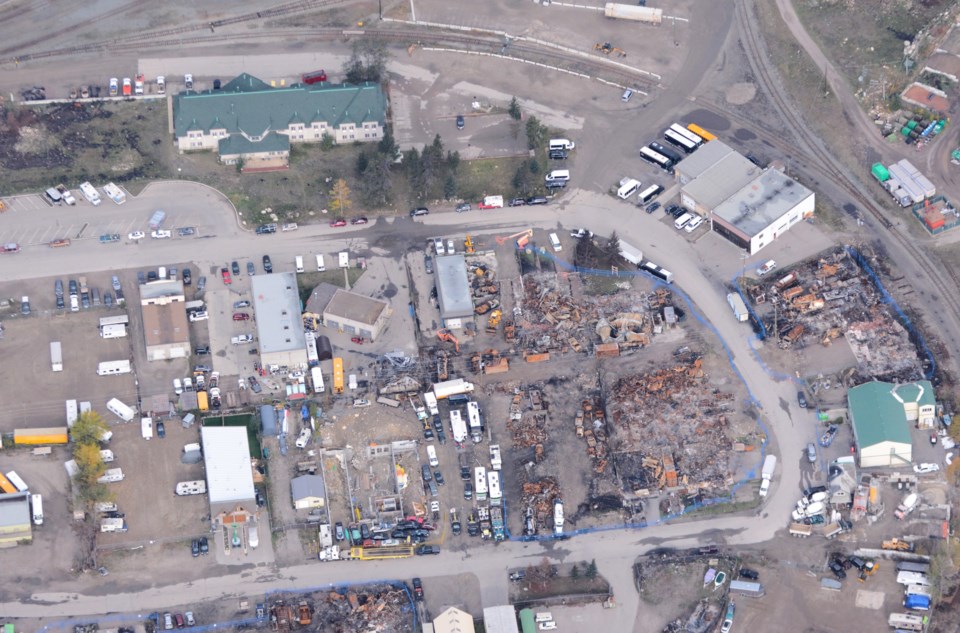The Municipality of Jasper lost $209.5 million in assessed value in 2024, around 10 per cent of the assessment base, largely due to the Jasper wildfire.
Troy Birtles, an assessment specialist with Accurate Assessment Group, told council on Tuesday (Feb. 18) that the typical increase in market value helped mitigate the assessment loss.
“People pay more money year over year for the properties, and that's still included in this year's assessment,” Birtles said. “However, the loss due to fire was so big that it overtook any market growth.”
The Jasper wildfire destroyed roughly 30 per cent of the townsite, or 358 structures, including 820 housing units.
Although the evaluation date was July 1, the physical characteristics date was Dec. 31, meaning while every property is valued at what its market value would have been as of July 1, properties that were destroyed as of Dec. 31 were removed from the assessment.
“To put that in a different way, if the fire happened on Jan. 2, legislatively, we would have had to have a full assessment on every single property, including all of the buildings, even though they were destroyed,” Birtles said. “So, that would have been very problematic.”
The residential assessment took the largest hit with a 14 per cent decrease, or a loss of $164.6 million. Non-residential dropped by six per cent, or $42.4 million, and exempt properties dropped by one per cent, or $2.4 million.
“That tells you there's a shift in-between [residential] and no-[residential], but then that's up to you folks with regards to your tax rates, however you deal with that,” Birtles told council.
Birtles reported that the provincial government hadn’t released the new numbers for the designated industrial property.
Most properties had a taxable assessment change between zero to 10 per cent, but 388 properties affected by the wildfire saw a change between -25 to -100 per cent.
When it comes to assessment change by area, the wildfire-affected areas were impacted the most, with Cabin Creek losing 53 per cent in assessment. This includes new construction and market inflation.
Hotels, which are assessed based on income, experienced only a collective $11.5 million drop, despite how several accommodations were lost. Birtles attributed this to hotel revenues rebounding from COVID-19, meaning the assessment values grew for the remaining hotels.
He also clarified that the effective assessment date for the income approach was July 1, but while the diminished income because of the fire may affect next year’s assessment, hotels had 50/30/20 weightings for net operating income over three years to mitigate spikes and normalize their income.
Coun. Rico Damota asked if there was an opportunity to recoup tax revenue losses from properties currently considered exempt.
Birtles replied most of those properties, which include schools and churches, were except through provincial legislation rather than municipal bylaw.



